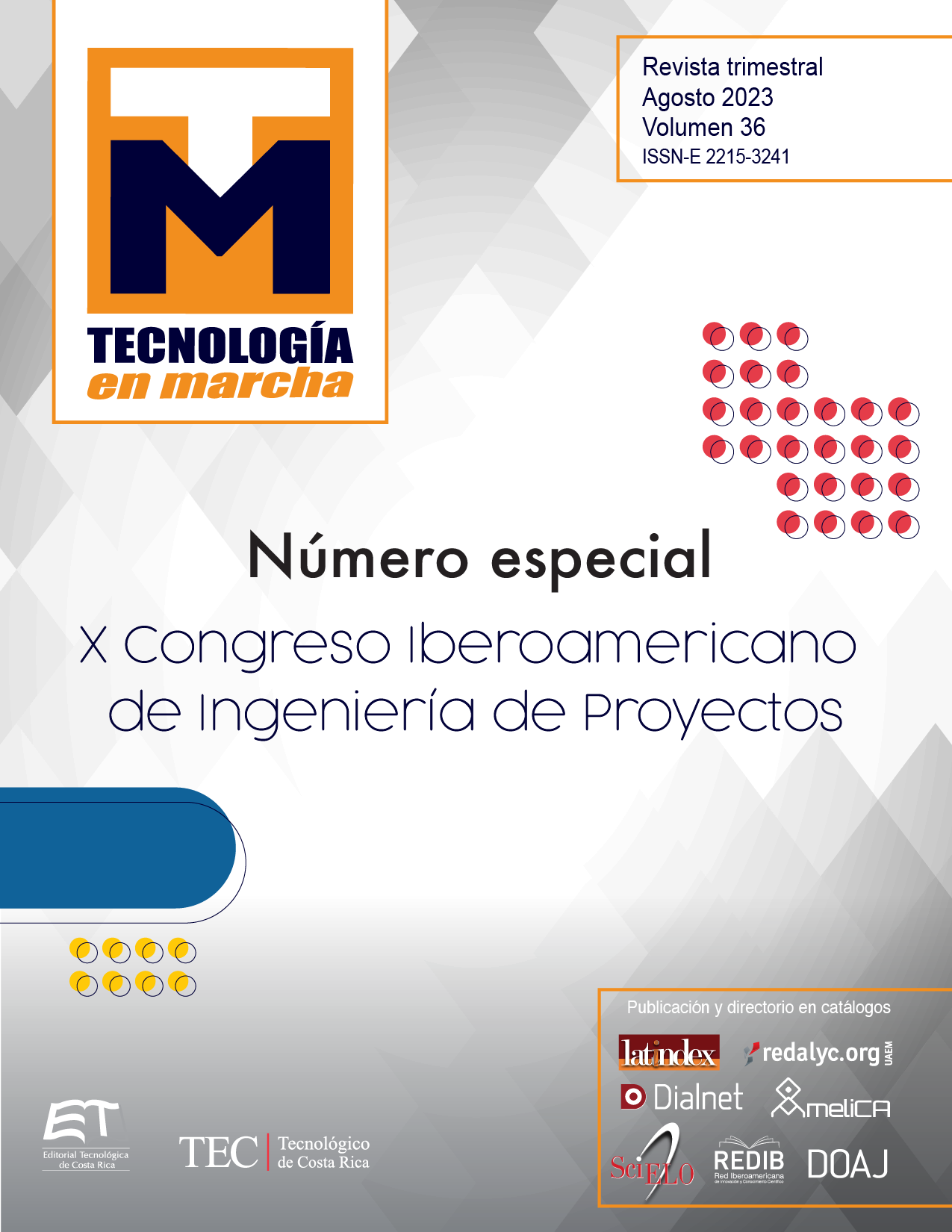Ethics, leadership and decision making in project management
Main Article Content
Abstract
The subject of ethics is a broad knowledge, dating from many years of development of thought in humanity. Organizations that are dedicated worldwide to promoting standards of good practices in project management, recognize ethics as a transversal axis and ethical thinking as a soft skill, essential for balanced decision making and building the leadership of the project manager. This article aims to answer the questions: how to talk about ethics to engineers? And what are the ethical aspects that are of relevance and frequent use of these people, when formulating, designing or directing projects? Through the bibliographic review of the applications that several authors have made in the field of ethics in engineering, added to the author’s experience in project management areas, a mental map of relationships of concepts, principles and tools of ethical thinking was built, and its practical link with the moments of decision-making in the exercise of engineering. It the article, the impact that the type of leadership and decision-making style of the project manager, is discussed. The project manager´s role as a resource manager and a decision maker is reviewed in this context. The mental map has been successfully used in the teaching of ethics in Civil Engineering, given its usefulness in engineering ethics case studies. It constitutes a panoramic, summarized and associative view of key ethical aspects, of interest and frequently used in the career.
Article Details

This work is licensed under a Creative Commons Attribution-NonCommercial-NoDerivatives 4.0 International License.
Los autores conservan los derechos de autor y ceden a la revista el derecho de la primera publicación y pueda editarlo, reproducirlo, distribuirlo, exhibirlo y comunicarlo en el país y en el extranjero mediante medios impresos y electrónicos. Asimismo, asumen el compromiso sobre cualquier litigio o reclamación relacionada con derechos de propiedad intelectual, exonerando de responsabilidad a la Editorial Tecnológica de Costa Rica. Además, se establece que los autores pueden realizar otros acuerdos contractuales independientes y adicionales para la distribución no exclusiva de la versión del artículo publicado en esta revista (p. ej., incluirlo en un repositorio institucional o publicarlo en un libro) siempre que indiquen claramente que el trabajo se publicó por primera vez en esta revista.
References
Chávez, Ezequiel. y Carbajal, Cuauhtémoc. (2014). Ética para ingenieros. Instituto Tecnológico y de Estudios Superiores de Monterrey. Segunda edición. México.
Colegio Federado de Ingenieros y Arquitectos (CFIA). (2022). Código de ética., consultado el 14 de julio de 2022, recuperado de: https://legal.cfia.or.cr/archivos/Codigo%20de%20Etica.pdf
Cortina, Adela. y Conill, Jesus. (2000). 10 palabras claves en ética de las profesiones. Navarra. Editorial Verbo Divino.
Cortina, Adela. y Martínez, Emilio. (2001). Ética. Tercera edición, Madrid. Ediciones Akal.
Figuerola, Norberto. (2014). Gobernabilidad de los proyectos. PMQuality artículos, versión digital, consultado el viernes 26 de mayo de 2019, recuperado de: https://articulospm.files.wordpress.com/2014/05/gobernabilidad-de-los-proyectos.pdf
Fleddermann, Charles. (2012). Engineering Ethics. Cuarta Edición. Prentice Hall. México
Grech, Pablo. (2013). Introducción a la ingeniería. Un enfoque a través del diseño. Segunda edición. Pearson.
Kellerman, Barbara (2012). The End of Leadership. Harper Collins Editorial. Nueva York. Estados Unidos.
Marlasca, Antonio. (2010). Introducción a la ética. San José, C.R. EUNED.
Martin, Mike. (2005). Ethics in engineering. Boston. McGraw-Hill.
Northouse, Peter G (2016). Leadership: Theory and Practice (7 ed.). London: SAGE.
PMI Project Management Institute. (2013). A guide to the Project Management Body of Knowledge (PMBOK Guide). Fifth Edition. Pennsylvania: PMI, Inc.
PMI Project Management Institute. (2016). Construction Extension to the PMBOK Guide. Second Edition. Pennsylvania: PMI, Inc.
PMI Project Management Institute (2022). Code of Ethics. (Recuperado el 15-juloi-22 de https://www.pmi.org/-/media/pmi/documents/public/pdf/ethics/pmi-code-of-ethics.pdf?sc_lang_temp=es-ES)
Saavedra, Juan Javier. (2013). Los Mecanismos de Influencia en la Relación de Liderazgo. Universidad del Rosario, Facultad de Administración, Bogotá, Colombia.

